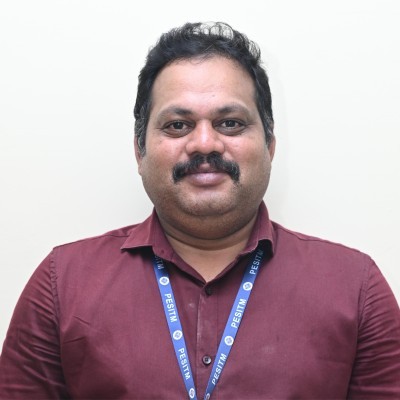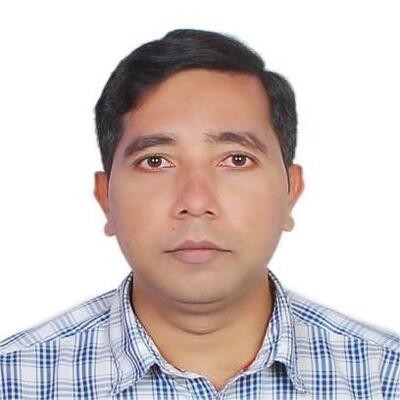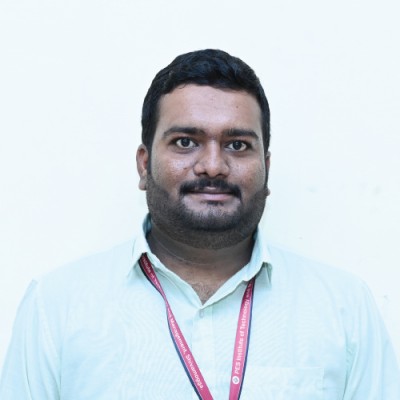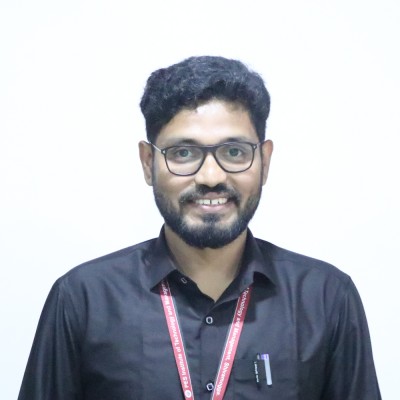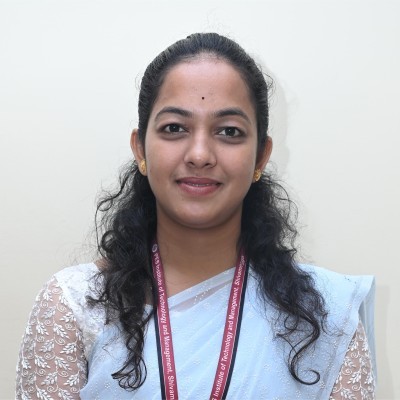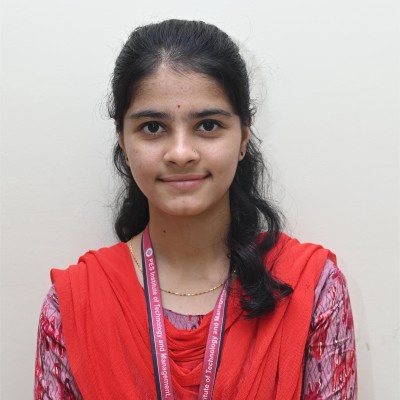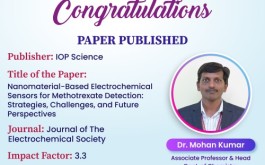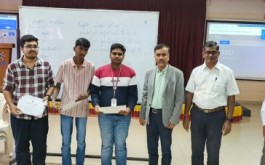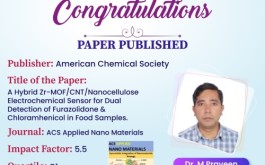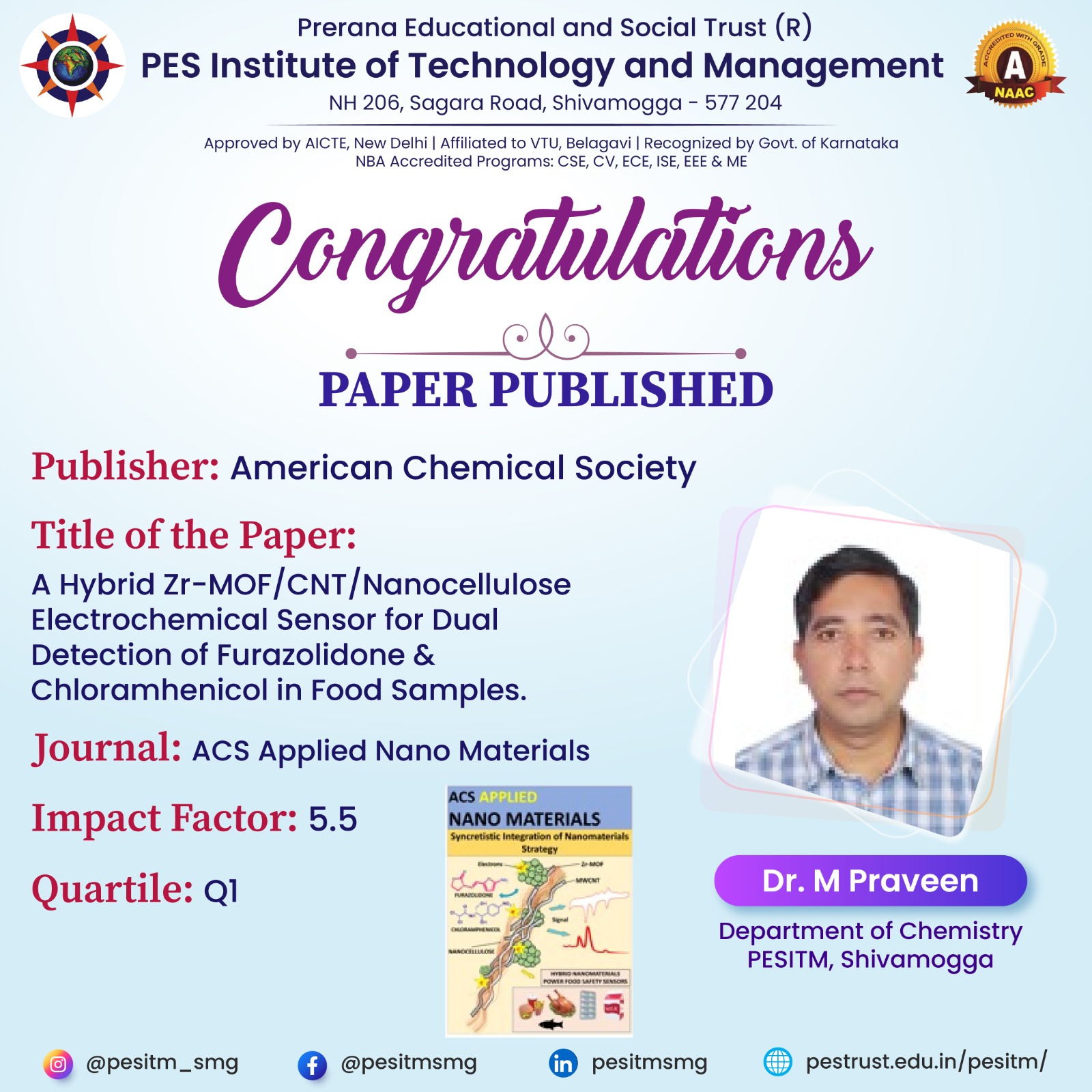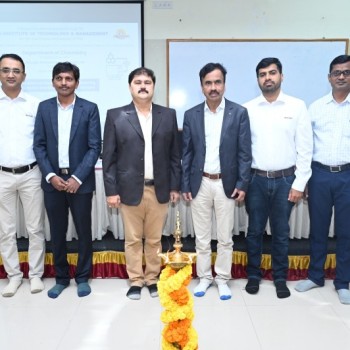Chemistry is one of the fundamental sciences which apart from its applications in its field, applies to other fields. The Engineering and Technology departments such as Chemical, Polymer Technology, Bio-Technology, Civil, Mechanical, Electrical, Electronics, Environmental, Computer Science and all other engineering fields need the knowledge of Chemistry to deal with the problems in their fields. Engineering Chemistry also imparts knowledge of the properties of materials, protecting them from corrosion and selecting the right types of materials used in various fields of Engineering and Industry.The Department has a research centre and faculties are involved in research activities in the fields of Nanomaterials synthesis, Electrochemical and Biosensors, EMI Shielding, Nanocomposite, and Biomaterials. The Engineering Chemistry laboratory has the latest and most advanced sophisticated instruments for the syllabus.
- Enthusiastic and well-qualified faculty members
- The Department has recognized a research center from Visvesvaraya Technological University, Belagavi.
- Faculty members are publishing high-quality research work in Peer-reviewed Journals, patents, books, and Book chapters.
- Students are provided with Career development training, workshops, seminars, and Student development activities.
Chemistry for Computer Science Stream(BCHES102/202)
- Understand the sensors and battery systems.
- Describe the memory devices, LC's,LCD's, OLED's and QLED,s display systems.
- Illustrates the principles of corrosion science and electrode systems.
- Comprehend the salient features of polymers and green fuels.
- Explain the remedial measures for the E-waste management.
- Practice working in groups to conduct experiments in chemistry and perform precise and honest measurements.
Chemistry for Electrical Stream(BCHEE102/202)
- Illustrates the chemistry of conductors,semiconductors,insulators and polymers in various applications.
- Describe the Energy conversion, storage and their applications.
- Understand the importance of corrosion science and E-waste management.
- Comprehend the basic principles of Nanomaterials and display systems.
- Explain the salient features of the electrodes and sensors in various engineering applications.
- Practice working in groups to conduct experiments in chemistry and perform precise and honest measurements.
Chemistry for Civil Stream(BCHEC102/202)
- Comprehend the properties and applications of metals,alloys,cement,refractories and glass.
- Describe the Energy conversion, storage and their applications also the principles of corrosion.
- Understand the importance of water and Nanotechnology.
- Illustrate the basic principles of polymers and composites.
- EExplain the salient features of the phase rule and analytical approaches.
- Practice working in groups to conduct experiments in chemistry and perform precise and honest measurements.
Chemistry for Mechanical Stream(BCHEM102/202)
- Describe the Energy:Source,conversion,storage and their applications.
- Illustrate the principles of corrosion science and engineering.
- Understand the importance of polymers and lubricants in engineering applications.
- Describe the principles of the Phase rule and also the salient features of potentiometric sensors,optical sensors and pH sensors.
- Explain the importance of alloys,ceramics for engineering applications and also discuss the principles of nanochemistry and nanomaterials.
- Practice working in groups to conduct experiments in chemistry and perform precise and honest measurements.
Faculty
Facilities / Labs
Chemistry Lab :Chemistry Lab :It has all the necessary equipment for the preparation of samples and standards for various analyses of liquid samples.
The laboratory houses traditional equipments like:
- Potentiometer
- Conductometer
- Colorimeter
- pH-meter
- Hot Air Oven
- Hot Plate Stirrer
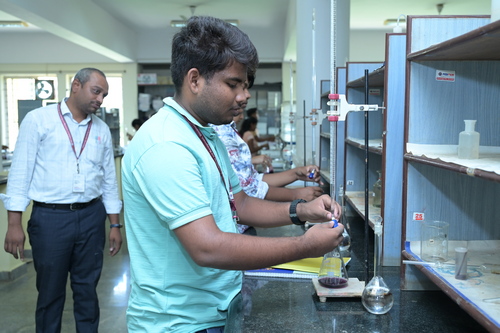
Research
Focus of Research
| SI. No | Name of the Faculty | Area of Research |
| 1 | Dr. Mohan Kumar | Synthesis of 2D Nanomaterials and their composites, Carbon based Nanomaterials, Development of carbon paste electrodes, biosensors, electrochemical sensor for drugs and organic pollutants, electrocatalyst, electropolymerization. |
| 2 | Dr. Shashikumara J K | Electrochemical sensor for biomolecules,Voltammetric studies |
Dr Shivakumar
| SI. No | Student Name | University | Research Area | Status |
| 1 | Jayaprakash M S | VTU | Polymer Blends | Awarded |
| 2 | Vinay K | VTU | Conducting Polymer Composites | Awarded |
Contact Us
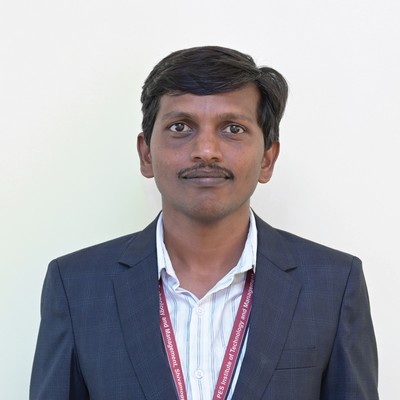
Dr. Mohan Kumar
Associate Professor and Head
Chemistry
PES Institute of Technology and Management
NH 206, Sagar Road, Shivamogga � 577 204
Office: 8147053073
Email:
hodche@pestrust.edu.in

